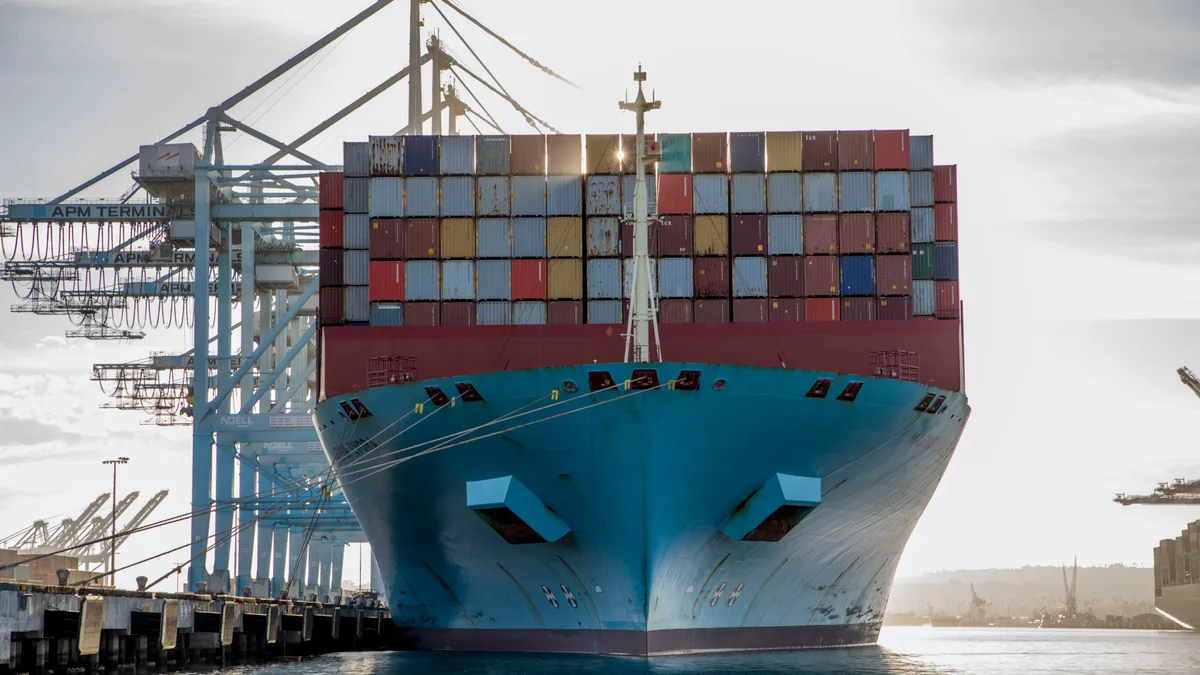Dive Brief:
- The Digital Container Shipping Association (DCSA), a non-profit group of nine major ocean freight carriers, published track and trace standards in an effort to unify information sharing and further digitalization goals, the association said Tuesday in a press release.
- Carriers, shippers and third parties can use track and trace standards to "enable cross-carrier shipment tracking" and can download the standards from the DCSA website, DCSA said. The group touted shipment visibility across several carriers and through five phases — pre-shipment, pre-ocean, ocean, post-ocean and post-shipment — as one of the benefits for shippers.
- Carrier members contributed to developing the standards and will begin to adopt the standards, a spokesperson for DCSA told Supply Chain Dive
Dive Insight:
Common standards are a key factor for blockchain initiatives in any industry. Without standards, organizations can struggle to share data because it's not in a common format. "Everyone has to speak the same language," Brian Reed, executive vice president of supply chain and global strategy for FreightWaves told Supply Chain Dive in 2018.
DCSA members include eight of the top 10 container lines (COSCO and PIL are not members) plus ZIM, the 11th largest carrier by volume, according to Alphaliner data. The association noted in its press release that DCSA membership represents 70% of the global container market.
With such a large proportion of the industry on board, adoption of common standards is critical to ensure information sharing, especially across large operations that use differing technologies and data exchange methods.
Collaboration among carriers and between carriers and shippers has not historically been the industry's strong suit, although Port of Long Beach Executive Director Mario Cordero told Supply Chain Dive last year the situation is improving. DCSA said its track and trace standards "set a new bar for collaboration."
Ocean carriers are also notoriously slow to digitalize and have been likened to dinosaurs by a Maersk executive, but the industry is slowly transforming. In a video DCSA posted on LinkedIn, Maersk Chief Technology and Information Officer Adam Banks said electronic data exchange is increasing. "If we don't do that in a standardized way from the start, the cost of fixing it will be quite high," he said.
DCSA's purpose from the get-go was to create digital standards and "quickly overcome the pain points in the industry," a press release stated when Maersk, Hapag-Lloyd, MSC and ONE formed the group in April 2019. About nine months later, DCSA has met the goal of creating digital standards.
But the work does not stop here. DCSA said its track and trace standards are just the "first of many initiatives ... to transform inefficient practices and accelerate digitalization."














